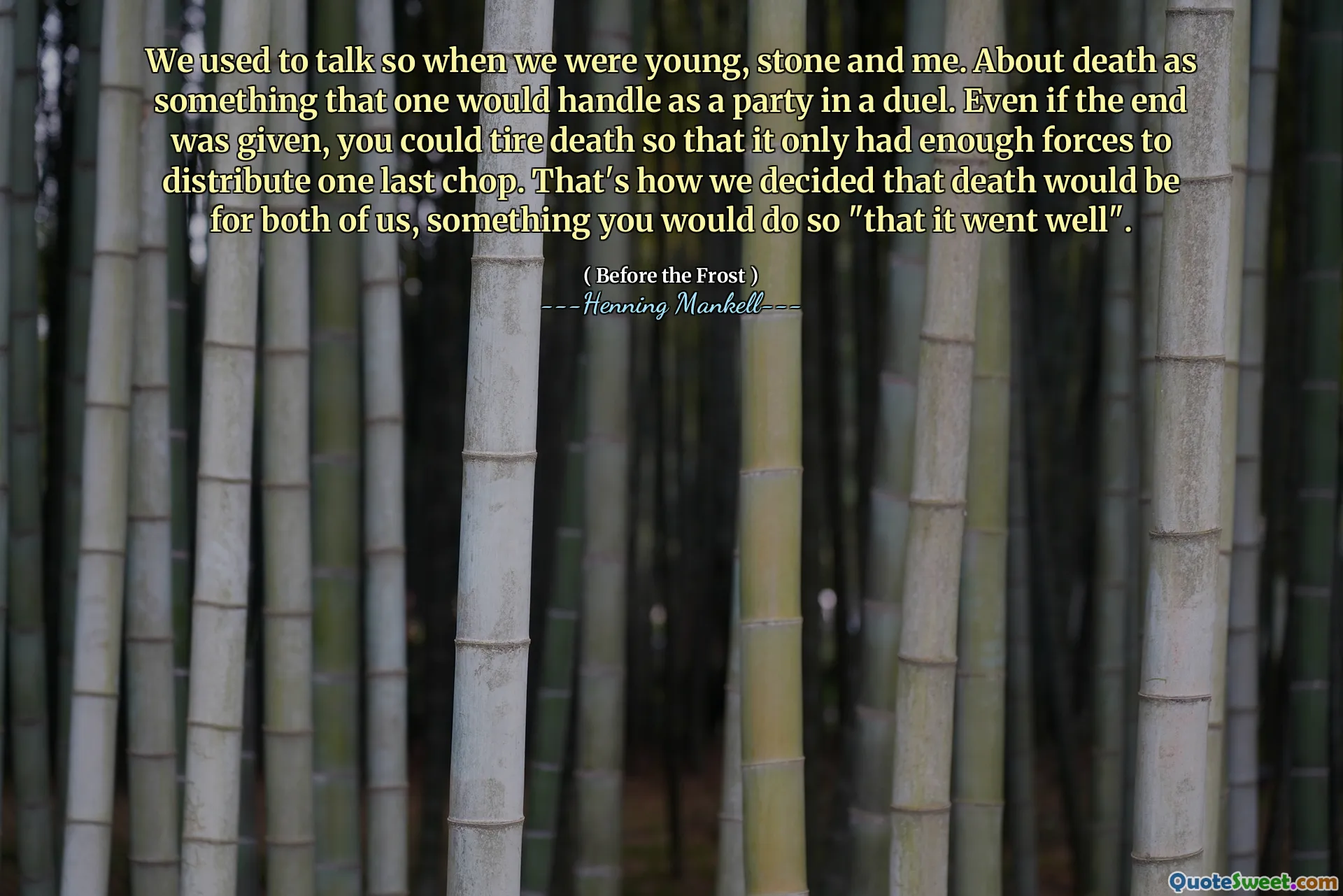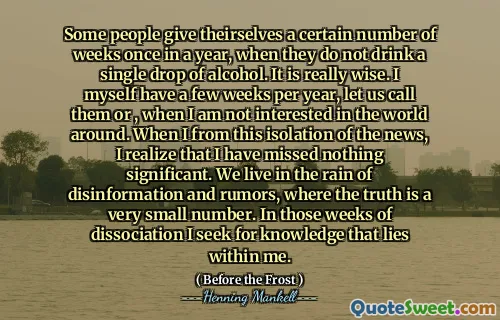
We used to talk so when we were young, stone and me. About death as something that one would handle as a party in a duel. Even if the end was given, you could tire death so that it only had enough forces to distribute one last chop. That's how we decided that death would be for both of us, something you would do so "that it went well".
In "Before the Frost," Henning Mankell explores the themes of mortality and the philosophical discussions surrounding death through the perspective of the narrator. When they were younger, the narrator and a friend, referred to as "stone," would engage in conversations about death as if it were a duel. They viewed it as a contest where one could outmaneuver death long enough to mitigate its finality, approaching it with a sense of strategy rather than fear.
This perspective illustrates how they sought to control the narrative around death, treating it almost like a performance where one could endure the struggles and emerge with a semblance of dignity. Their discussions reflect a youthful bravado and a desire to confront the inevitable in a way that felt empowering. The phrase "that it went well" encapsulates their hope for a dignified passage, emphasizing the importance of how one faces life's ultimate certainty.











